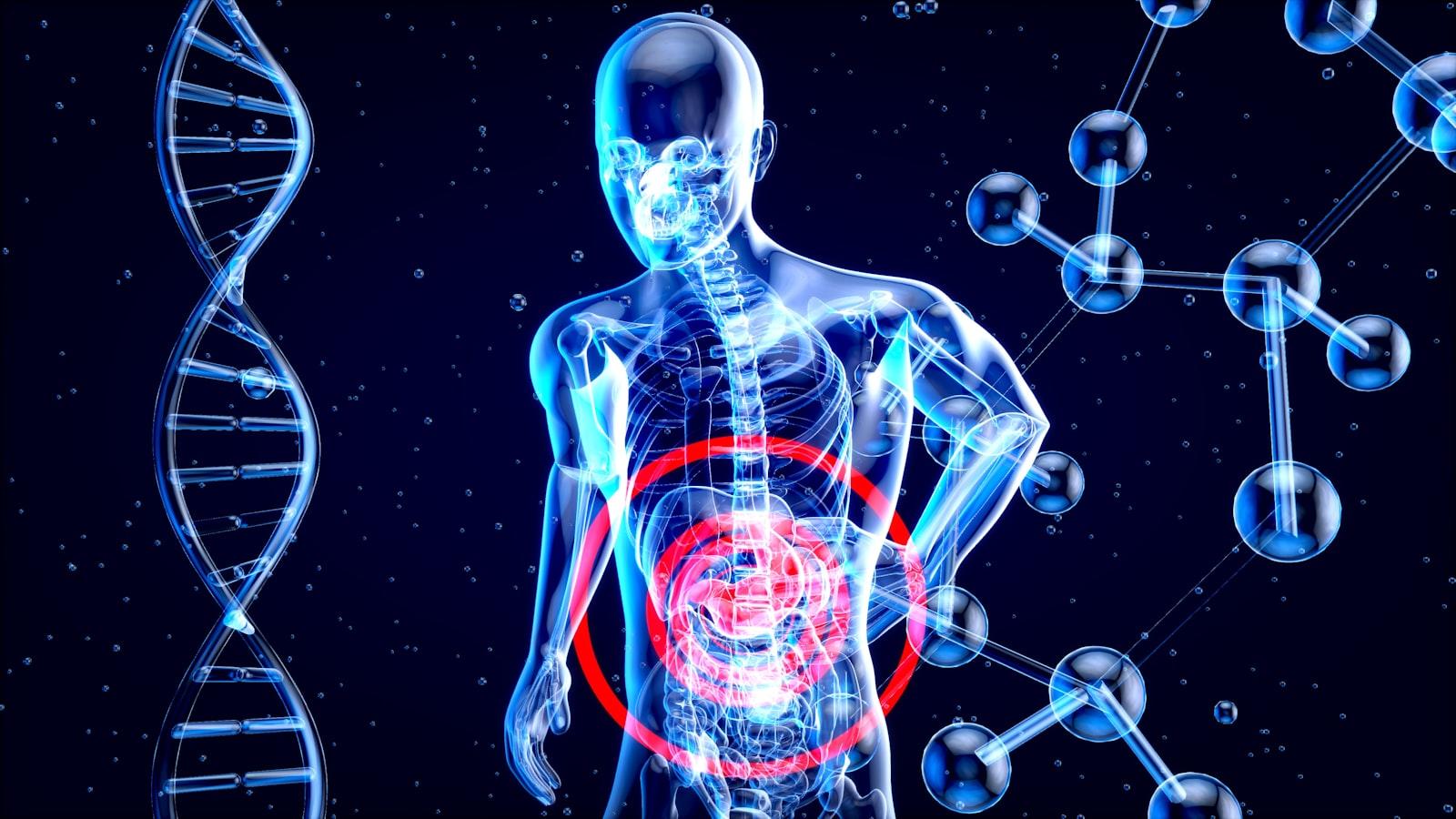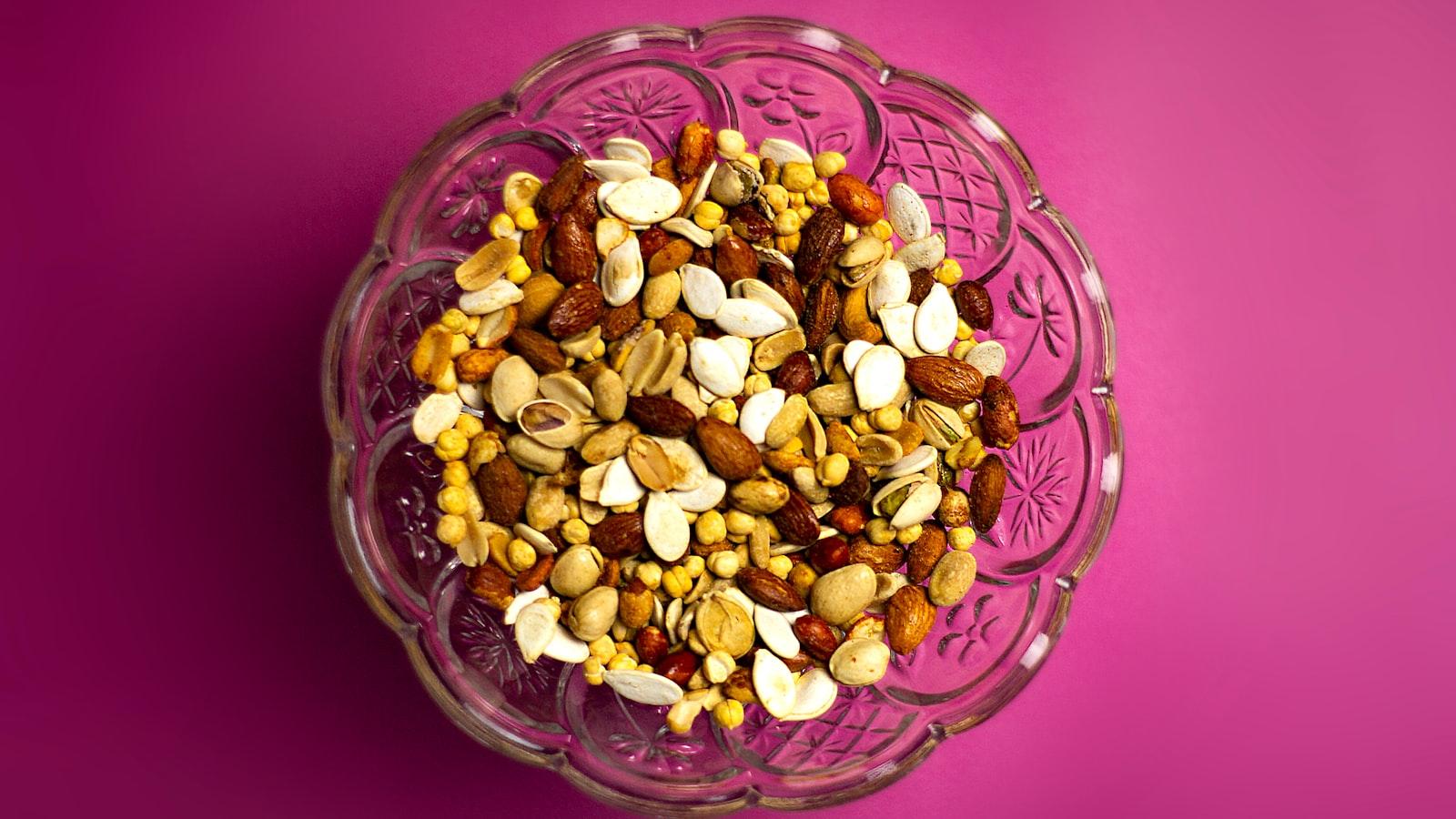Step inside the mysterious world of digestion, where an intricate orchestra of enzymes dances together to unlock the hidden treasures in our meals. From the mesmerizing journey down the esophagus to the bustling activity within the intestines, these unsung heroes are the catalysts that make nutrient absorption possible. Welcome to a captivating exploration of digestive enzymes and their remarkable role in fueling our bodies. In this article, we will unravel the secrets behind their seamless coordination and learn how they transform our culinary delights into precious sustenance. Prepare to be enthralled by the fantastical realm of digestive enzymes and their undeniable impact on our well-being.
Understanding Digestive Enzymes: Key Players in Nutrient Absorption
In the world of digestion, there are some unsung heroes quietly working behind the scenes – digestive enzymes. These powerful little substances play a key role in breaking down our food and enabling the absorption of essential nutrients. Without them, our bodies wouldn’t be able to efficiently extract the energy and building blocks we need to thrive.
Digestive enzymes are like the skilled workers in a factory, each with their own unique job. They are produced primarily in the pancreas and released into the digestive tract to tackle specific tasks. Here are some of the key players involved in nutrient absorption:
-
Amylase: This enzyme is responsible for breaking down carbohydrates into simpler sugars that our bodies can easily absorb. It is produced in the salivary glands and pancreas, and plays a crucial role in getting energy from foods like bread, rice, and potatoes.
-
Lipase: As the name suggests, lipase is the enzyme that breaks down fats or lipids. It is produced in the pancreas and helps to convert complex fats into smaller molecules called fatty acids and glycerol. These smaller components can then be absorbed by the intestines and used for energy or storage.
-
Protease: Proteins are the building blocks of our bodies, but they are too large to be absorbed directly. Enter protease, the enzyme that breaks down proteins into smaller peptides and amino acids. Produced in the stomach, pancreas, and small intestine, protease ensures that the protein we consume can be effectively digested and used for growth, repair, and various bodily functions.
By working together, these digestive enzymes process our food into molecules that can easily pass through the walls of the intestines and enter our bloodstream. They truly are the unsung heroes of digestion, silently enabling nutrient absorption and fueling our bodies with the essential elements needed for optimal health and vitality.
The Role of Digestive Enzymes in Breaking Down Food
Digestive enzymes play a crucial role in breaking down the food we consume, assisting in the process of nutrient absorption. These remarkable biological molecules are responsible for breaking down complex macromolecules into smaller, more manageable components that can be absorbed by the body. Without them, the nutrients in our food would remain locked away, inaccessible to our cells.
There are several types of digestive enzymes, each specialized in breaking down a specific type of nutrient. For instance, amylases break down carbohydrates into simple sugars, proteases break down proteins into smaller amino acids, and lipases break down fats into fatty acids and glycerol. These enzymes work together in harmony, creating a symphony of reactions that transform the food we eat into the building blocks our bodies need.

Optimizing Nutrient Absorption: Tips for Supporting Digestive Enzyme Function
Proper digestion plays a crucial role in maximizing nutrient absorption and supporting overall well-being. One important factor in the digestive process is the action of digestive enzymes. These enzymes, produced by the body, break down the food we eat into smaller molecules that can be easily absorbed and utilized by our cells.
There are different types of digestive enzymes, each specific to breaking down a particular nutrient. For example, amylase helps digest starches and carbohydrates, while protease breaks down proteins. Lipase, on the other hand, aids in the digestion and absorption of fats.
However, there are factors that can affect the optimal functioning of digestive enzymes. Poor diet, stress, aging, and certain health conditions can all impact their production and activity. To support the function of these crucial enzymes and enhance nutrient absorption, consider these tips:
- Eat a balanced diet with a variety of nutrient-rich foods, including fruits, vegetables, whole grains, and lean proteins.
- Chew your food thoroughly to aid in the breakdown process and activate saliva, which contains amylase.
- Avoid overeating, as it can overwhelm the digestive system and hinder proper enzyme function.
- Manage stress levels through relaxation techniques like meditation or yoga, as stress can negatively impact digestion.
- Consider incorporating digestive enzyme supplements into your routine, especially if you have specific digestive issues or deficiencies.
- Support gut health by consuming probiotic-rich foods like yogurt or taking probiotic supplements, as a healthy gut microbiome promotes optimal enzyme production.
By taking steps to optimize your digestive enzyme function, you can help ensure that your body efficiently absorbs and utilizes the nutrients necessary for maintaining optimal health.

Enhancing Nutrient Absorption Through Digestive Enzyme Supplementation
When it comes to our overall well-being, the key lies not only in the food we consume but also in how effectively our bodies absorb the essential nutrients from that food. This is where digestive enzymes come into play. These remarkable substances work tirelessly within our gastrointestinal tract, enhancing nutrient absorption and ensuring optimal digestion.
Digestive enzymes, such as amylase, protease, and lipase, break down complex carbohydrates, proteins, and fats, respectively, into smaller, more easily absorbable molecules. By facilitating the breakdown of these macronutrients, digestive enzymes enable our bodies to extract vital vitamins, minerals, and other nutrients from the foods we eat. This process is essential for maintaining optimal health and preventing nutritional deficiencies.
By supplementing with digestive enzymes, individuals can support their bodies’ natural ability to break down and absorb nutrients. This is particularly beneficial for those with digestive disorders, such as lactose intolerance or pancreatitis, as it can relieve discomfort and promote better nutrient utilization. Adding digestive enzyme supplements to one’s daily routine can improve overall digestion, increase nutrient absorption, and enhance overall well-being.
How Digestive Enzymes Enhance Nutrient Absorption
1. Breakdown of Carbohydrates:
Digestive enzymes like amylase help break down complex carbohydrates found in foods like bread, pasta, and rice into simpler sugars like glucose. This enables our bodies to efficiently absorb carbohydrates and convert them into energy.
2. Protein Digestion:
Protease, another crucial digestive enzyme, aids in the breakdown of proteins into amino acids. These building blocks are then absorbed in the small intestine, supporting muscle growth, tissue repair, and various other physiological functions.
3. Fat Absorption:
Lipase, the enzyme responsible for breaking down fats, converts them into fatty acids and glycerol. This enables the body to absorb fat-soluble vitamins, such as vitamins A, D, E, and K, which are essential for various bodily processes.
By supplementing with digestive enzymes, individuals can ensure the efficient breakdown and absorption of nutrients from their diets, leading to improved overall health and vitality.
| Enzyme | Function |
|---|---|
| Amylase | Breaks down carbohydrates into simple sugars |
| Protease | Aids in protein digestion |
| Lipase | Assists in the breakdown of fats |
| Lactase | Breaks down lactose in dairy products |
In Summary
As we reach the end of our journey into the captivating world of digestive enzymes, one thing becomes abundantly clear – these microscopic powerhouses are the unsung heroes behind our body’s ability to absorb essential nutrients. With their remarkable efficiency and tireless dedication, digestive enzymes pave the way for our overall well-being.
A symphony of chemical reactions orchestrates the process of nutrient absorption, and it is within this complex symphony that digestive enzymes hold a key role. They dutifully break down proteins, carbohydrates, and fats into smaller, more manageable components, ensuring that our bodies can extract every ounce of goodness from the food we consume.
Imagine a bustling marketplace, where food particles are transformed into vital nutrients. Proteins are meticulously broken down into smaller amino acids, eagerly awaited by our hungry muscles. Carbohydrates are meticulously disassembled into simple sugars, rushing to fuel our body’s energy needs. Fats are meticulously dismantled into fatty acids, racing to build cell membranes and support various bodily functions.
Without the unwavering dedication of digestive enzymes, this ongoing transformation would come to a screeching halt, leaving us malnourished and vulnerable. Imagine a surrealist painting devoid of vibrant colors; our bodies would simply wilt away, starved of the vital elements they need to thrive.
From the moment we take that first bite to the final stages of nutrient absorption, digestive enzymes stand as tireless guardians, ensuring that every morsel of food is utilized to its utmost potential. Yet, they often remain unnoticed, overshadowed by other bodily processes. It is high time we acknowledge and appreciate their incredible contributions to our overall health.
So, the next time you savor a nutritious meal or indulge in a guilty pleasure, take a moment to thank those silent superheroes working diligently within your body. With their incredible ability to facilitate nutrient absorption, digestive enzymes play an essential role in nourishing our cells, supporting growth, and maintaining optimal health. Let us celebrate their invisible presence, for without them, our journey to vitality would remain incomplete.
